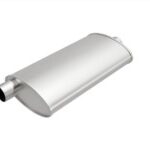Facing car repossession can be a stressful experience. If you’re behind on your car payments, you might be worried about losing your vehicle and wondering, “Can you get your car back if it gets repo?” The good news is that in many cases, the answer is yes. Understanding your rights and acting quickly are crucial to potentially reclaiming your car after repossession.
Understanding Car Repossession Basics
Car repossession is the legal process where your lender (creditor) takes back your vehicle when you fail to keep up with your loan payments or violate the terms of your loan agreement. This usually happens when you are in default, meaning you’ve missed payments. It’s important to know that in most jurisdictions, lenders are not legally obligated to provide you with advance notice before repossessing your car. They have the right to seize the vehicle from your property as long as they don’t breach the peace – meaning they can’t use physical force or threats.
Can You Get Your Car Back After Repossession? Exploring Your Options
While losing your car to repossession is undoubtedly difficult, it’s not necessarily the end of the road. Here are several avenues you might be able to pursue to get your car back:
1. Reinstatement: Catching Up on Payments
Reinstatement is one potential way to recover your vehicle. This typically involves paying all the past-due payments, along with any expenses related to the repossession itself, such as towing and storage fees. Your loan agreement should outline the specific terms for reinstatement, including the timeframe within which you must act. Contact your lender immediately to inquire about the exact amount required for reinstatement and the deadline.
2. Redemption: Paying Off the Loan in Full
Redemption offers another route to get your car back. This option involves paying off the entire outstanding balance of your car loan, plus repossession expenses. While this requires a significant sum of money, it allows you to regain full ownership of your vehicle and avoid further financial repercussions associated with the repossession process. Again, time is of the essence, so contact your lender promptly to determine the redemption amount and the deadline.
3. Negotiating with Your Creditor
Sometimes, direct communication and negotiation with your creditor can lead to a favorable outcome. Reach out to your lender as soon as possible after repossession. Explain your situation and explore potential solutions. They might be willing to work out a payment plan, modify your loan terms, or even agree to return the vehicle if you can demonstrate a commitment to fulfilling your financial obligations. Having a written agreement for any new arrangement is critical to protect your rights.
4. Bidding at the Repossession Auction
After repossession, lenders usually sell the vehicle at a public or private auction to recover the outstanding loan amount. You have the right to attend the public auction and bid on your car. If you are the highest bidder and can afford to repurchase your vehicle, this can be a way to get it back, although you will essentially be buying it again. Lenders are legally required to notify you about the date, time, and location of a public auction, or the date after which a private sale will occur.
What Happens If Getting Your Car Back Isn’t Possible?
If you are unable to reinstate, redeem, negotiate a return, or repurchase your vehicle at auction, the lender will proceed to sell the car. After the sale, they will calculate if there is a “deficiency balance.” This is the difference between the sale price of the car (after deducting repossession and sale expenses) and the total amount you still owed on the loan. You will be legally responsible for paying this deficiency balance. Conversely, if the sale price exceeds your loan balance and repossession costs, the lender is obligated to refund the surplus to you.
Prevention is Better Than Cure
While there are ways to potentially get your car back after repossession, it’s always best to avoid repossession in the first place. If you anticipate difficulty making payments, contact your lender immediately. Many creditors are willing to work with borrowers to adjust payment schedules or create temporary arrangements to prevent default and repossession. Proactive communication is key to managing financial challenges and protecting your assets.
In conclusion, while car repossession is a serious event, you may have options to recover your vehicle. Understanding your rights regarding reinstatement, redemption, negotiation, and auction participation is essential. Acting promptly and communicating with your lender are crucial steps in attempting to get your car back after repossession. Remember, preventing repossession through proactive financial management and communication is always the most advantageous approach.

